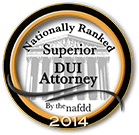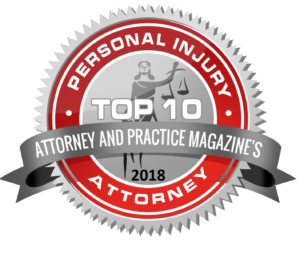Car accidents are an unfortunate reality of life. The impact can be severe, not just physically but emotionally and financially. When you’re injured in a car accident in Virginia, the aftermath can be overwhelming. Alongside the pain and trauma, one of the most pressing issues many face is how to handle the medical bills that start piling up almost immediately. Understanding how to deal with these expenses is crucial for your recovery and financial stability. This page delves into the complexities of managing medical bills after a Virginia car accident and offers insights into your options for relief.

The Immediate Financial Burden of Medical Bills
The moments after a car accident can be chaotic and confusing. Your priority is, of course, your health and the health of your loved ones. However, once you’ve been treated for your injuries, the reality of medical expenses quickly sets in. Medical bills can start arriving within days of the accident. These may include emergency room visits, ambulance fees, surgery, hospital stays, and ongoing treatments like physical therapy. The costs can be astronomical, especially if your injuries are severe. Even with health insurance, you might find that not all expenses are covered, leaving you with a significant financial burden.
Navigating through these bills can be particularly challenging when you’re also trying to recover physically and emotionally. It’s easy to feel overwhelmed and unsure of where to turn for help. Many people are unaware of their rights and the options available to them to alleviate this financial stress. Understanding Virginia’s laws and how they apply to your situation is a crucial first step in managing these expenses.
Virginia’s At-Fault System and Its Implications
In Virginia, the legal system operates on an at-fault basis when it comes to car accidents. This means that the person who is deemed responsible for the accident is also responsible for covering the damages, including medical bills, property damage, and other related costs. If you’ve been injured in a car accident and another driver is found to be at fault, their insurance company should cover your medical expenses.
However, the process is rarely straightforward. Insurance companies often dispute claims, and it’s not uncommon for them to offer settlements that are far below what you deserve. In some cases, they may deny liability altogether, leaving you to cover the costs on your own. This can be a stressful and frustrating situation, especially when you’re trying to recover from your injuries.
It’s also important to note that Virginia follows the doctrine of contributory negligence. This means that if you are found to be even slightly at fault for the accident, you may be barred from recovering any compensation from the other party. This doctrine can complicate your ability to cover medical expenses, making it even more crucial to have a strong legal advocate on your side who can help navigate these complex waters.
Health Insurance and Medical Payment Coverage
If you have health insurance, it will likely cover a portion of your medical expenses after a car accident. However, health insurance policies vary, and there may be limitations on what is covered. For example, some policies may require you to pay a high deductible before coverage kicks in, or they may not cover certain treatments or therapies that are necessary for your recovery.
In addition to health insurance, you may also have medical payment coverage (MedPay) as part of your auto insurance policy. MedPay is optional in Virginia, but it can be extremely beneficial if you have it. This coverage helps pay for medical expenses related to a car accident, regardless of who is at fault. It can cover a range of costs, including hospital visits, surgeries, X-rays, and even funeral expenses in the worst-case scenario.
One of the advantages of MedPay is that it can help cover the gap between what your health insurance pays and the actual cost of your medical care. However, like any insurance policy, there are limits to what MedPay will cover. It’s essential to understand your policy’s terms and work closely with your insurance provider to ensure you’re maximizing your benefits.
The Role of Personal Injury Protection (PIP)
Although Virginia does not require drivers to carry Personal Injury Protection (PIP), it’s an option that some may have chosen. PIP coverage can be beneficial in the event of a car accident, as it helps cover medical expenses and lost wages. Like MedPay, PIP coverage is available regardless of who is at fault for the accident. This type of coverage can be particularly useful if your injuries prevent you from working, as it can help replace a portion of your lost income while you recover.
However, PIP coverage also has its limitations. It may not cover all of your medical expenses, and there may be caps on the amount you can receive. Additionally, using PIP coverage may affect your ability to pursue a personal injury claim against the at-fault driver. It’s crucial to weigh the benefits and drawbacks of using PIP coverage and consult with a legal professional to determine the best course of action for your specific situation.
Dealing with Insurance Companies
After a car accident, you will likely have to deal with multiple insurance companies, including your own and the at-fault driver’s insurer. This process can be complicated and time-consuming, especially if there are disputes over liability or the extent of your injuries. Insurance companies are businesses, and their primary goal is to minimize their financial liability. This means they may try to offer you a quick settlement that is far less than what you need to cover your medical expenses and other costs.
It’s important to remember that you are not obligated to accept the first settlement offer you receive. In fact, it’s often advisable to consult with a legal professional before agreeing to any settlement. An experienced attorney can help you negotiate with the insurance companies and ensure that you receive the compensation you deserve.
In some cases, you may need to file a lawsuit to recover the full amount of your damages. This can be a lengthy and complex process, but it may be necessary to ensure that your medical bills are fully covered. Having a skilled attorney by your side can make a significant difference in the outcome of your case.
Choosing a Personal Injury Attorney Personal Injury Case TimelineRelated Videos
Seeking Compensation Through a Personal Injury Claim
If you’ve been injured in a car accident in Virginia and another driver is at fault, you may be entitled to compensation through a personal injury claim. This type of claim can help cover your medical expenses, lost wages, pain and suffering, and other damages related to the accident. However, pursuing a personal injury claim can be a challenging process, particularly if the at-fault driver or their insurance company disputes liability.
To successfully pursue a personal injury claim, you will need to gather evidence to support your case. This may include medical records, accident reports, witness statements, and any other documentation that can help prove the extent of your injuries and the impact the accident has had on your life. It’s also essential to act quickly, as Virginia has a statute of limitations that limits the amount of time you have to file a claim.
Working with an experienced attorney can significantly improve your chances of success. An attorney can help you navigate the legal process, negotiate with insurance companies, and represent you in court if necessary. They can also help you understand your rights and ensure that you receive the compensation you need to cover your medical bills and other expenses.
The Importance of Legal Representation
Navigating the aftermath of a car accident can be overwhelming, especially when you’re dealing with injuries and mounting medical bills. Having legal representation can make a significant difference in your ability to manage these challenges. An experienced attorney can help you understand your rights, negotiate with insurance companies, and pursue a personal injury claim if necessary.
Legal representation is particularly important in Virginia, where the contributory negligence doctrine can complicate your ability to recover compensation. If you’re found to be even partially at fault for the accident, you may be barred from recovering any damages. An attorney can help build a strong case to demonstrate that the other driver was fully responsible for the accident, improving your chances of receiving compensation.
In addition to helping you navigate the legal process, an attorney can also provide valuable support and guidance during this difficult time. They can help you understand your options, answer your questions, and ensure that you’re making informed decisions about your case.
Dealing with medical bills after a car accident in Virginia can be a daunting experience. You don’t have to face it alone. At NovaLegalGroup, P.C., we understand the challenges you’re facing and are here to help you navigate the complex legal landscape. Our team of dedicated professionals is committed to helping you secure the compensation you need to cover your medical expenses and move forward with your life. If you’ve been injured in a car accident and are struggling with medical bills, contact NovaLegalGroup, P.C. today. We’ll work with you to understand your situation, explore your options, and fight for the justice and compensation you deserve. Let us be your advocate during this challenging time.










